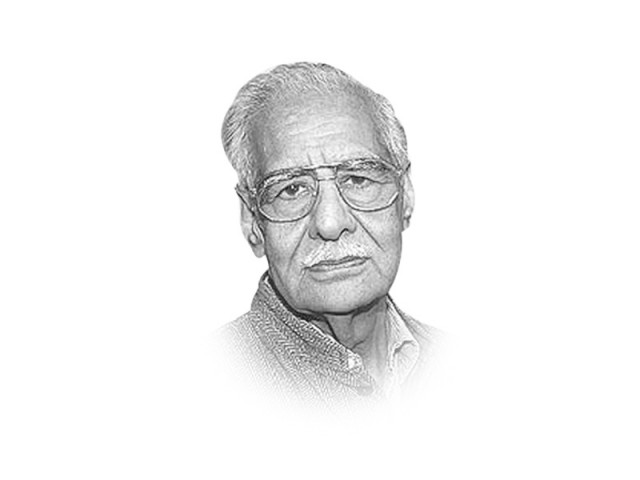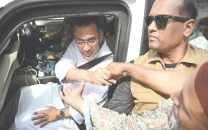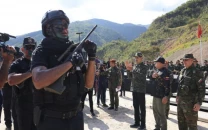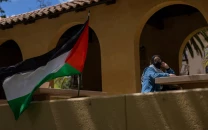Netaji versus the Mahatma
It was a confrontation between the 2 ideologies, one non-violent, the other all for use of arms, if the need arises

Netaji versus the Mahatma
Netaji died abroad in mysterious circumstances and never returned to subjugated India. His papers reveal not only his differences with the Mahatma, but also those between the cult of violence against the ideology of non-violence. The government of India had an ideal opportunity to release the papers related to him when a person asked for them under the Right to Information Act sometime back. People in India are disappointed that the BJP has gone back on its words of making these papers public, which it had promised while campaigning for the elections. Home Minister Rajnath Singh, who gave the undertaking, has taken a U-turn on the issue and has refused to divulge the information in parliament. That the home minister has not kept his promise is unfortunate, but more regrettable is the denial of authentic information on the differences between Netaji and Mahatma Gandhi. Apparently, it was more than mere differences in their viewpoints. All that the public knows is that the Mahatma supported J B Kripalani, a leading Congress leader, against Netaji for the office of the Congress presidency in the party elections. In fact, it was a confrontation between the two ideologies, one non-violent and the other all for the use of arms, if the need arises.
With the Mahatma jumping into the arena, the contest did not remain confined to whether one should follow non-violence or violence. It became a challenge to Netaji’s authority and he did not want the national movement to look divided so preferred to withdraw. But his stock did not suffer. People began to revere him even more. However, the Mahatma turned out to be right about the inability of violence to match the strength of the British Empire, and that non-violence, backed by the teeming millions, was the most effective weapon. In fact, the Mahatma’s ideology had a moral and critical side to it: you can win through love even the most powerful of tyrants; you cannot do this through the gun.
There is no doubt that Netaji was popular and had a band of people, called the Forward Bloc, following him through thick and thin. But the mass appeal of the Mahatma had drowned the Forward Bloc’s voice and very few people cared for it. Today’s India needs a force like the INA because the alternative, the Congress, is collapsing. The INA’s message of togetherness — Hindus, Muslims, Sikhs and Christians gathering on the same platform — is important to keep India’s attention focused on much-needed development. True, Prime Minister Narendra Modi talks about this but when the development is spelt out, it seems to be aimed at benefiting only the upper half of society and not the lower half.
In Modi’s six-month rule so far, there has neither been any reduction in the number of poor nor much improvement in their lot. This is primarily because the BJP has no economic programme for the uplift of the poor. Comparisons are odious, but China has been able to get 20 million people out of poverty. True, China has a totalitarian system but in democratic India, some progress should have been visible. Apart from speeches of political leaders on ameliorating the lot of the poor, little has been done in this regard on the ground. Election after election, the Indian nation is sold the dream of development, but this does not fructify because both the main political parties do not have any plan for the people.
It is good to hark back to the days of India’s national struggle when roti, kapra aur makaan were promised. But we also have to think about our present, as well as our future. People of India have little faith in the country’s political parties, but do they have any alternative?
Published in The Express Tribune, December 11th, 2014.
Like Opinion & Editorial on Facebook, follow @ETOpEd on Twitter to receive all updates on all our daily pieces.




1726734110-0/BeFunky-collage-(10)1726734110-0-208x130.webp)














COMMENTS
Comments are moderated and generally will be posted if they are on-topic and not abusive.
For more information, please see our Comments FAQ